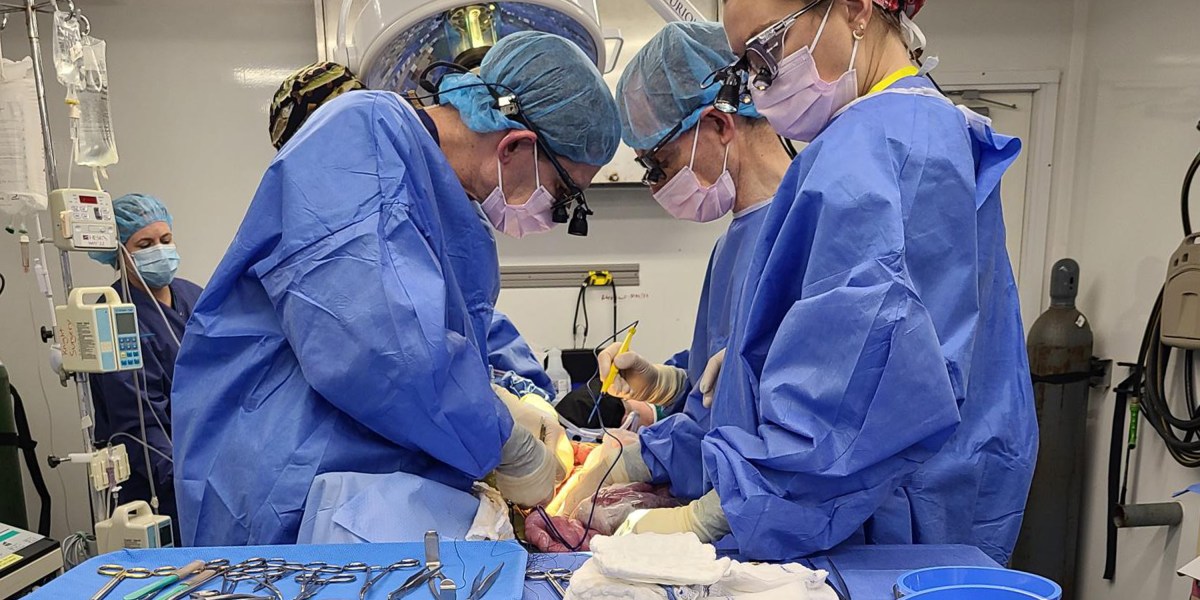
“There is always curiosity. Everyone takes a meeting,” says Curtis. “They do view it as the future, but is it next year, or 100 years from now?”
“With a heart transplant, you are really swinging for the fence,” he says. “Whereas with extracorporeal, it’s a little more like how products usually get developed. You can try for steady improvements.”
This is the first time an organ from one of the eGenesis pigs has been tried with a human, but Curtis says eGenesis is ready to apply for permission to start a formal trial of the liver system this year. If it gets the green light, that could make it the first formal clinical trial of any gene-edited pig organ. (The heart transplants were considered one-off bids to help patients, not a clinical trial.)
The experiment started on December 22, after the family of a elderly man who’d suffered a brain bleed agreed to let his body be used in the research. He was brain dead, but his heart was still beating.
During the experiment, the pig liver was mounted into a device from the company OrganOx that is normally used to keep donated human organs warm and perfused with blood so they will be available for transplant longer.
In this case, tubes connected to the subject’s veins were routed into the machine, and the two remained attached for 72 hours.
The idea of extracorporeal organs has been tried before. In the 1990s, researchers connected several patients to livers taken from ordinary pigs, but the organs quickly deteriorated. According to eGenesis, its liver, which came from a genetically modified Yucatan minipig, was still healthy even after three days.
Unlike hearts and kidneys, pig livers probably aren’t plausible candidates for transplanting directly into a person. One of the organ’s jobs is to mass-produce proteins, fats, and glucose—and the pig versions of those molecules would probably provoke a powerful immune reaction against even a genetically modified liver.
Adam Griesemer, a surgical director for the NYU Langone Transplant Institute, says extracorporeal use is “probably the only application” for pig livers.
